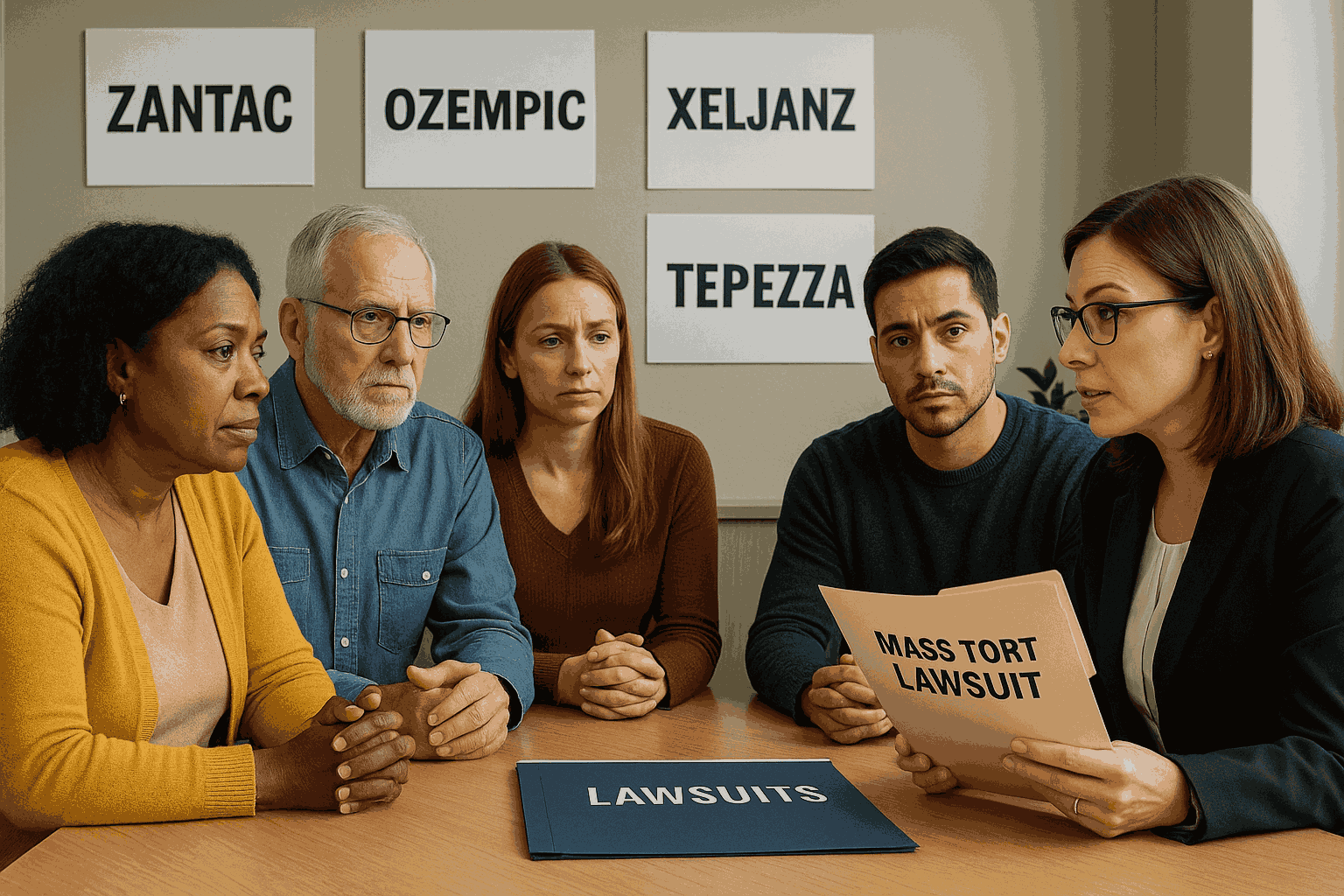
The year 2025 has seen a surge in lawsuits filed against some of the world’s biggest pharmaceutical companies. From cancer-causing medications to drugs linked to birth defects and neurological disorders, thousands of patients and families are pursuing justice after suffering devastating side effects.
This article highlights the most significant dangerous drug lawsuits underway in 2025, the companies being sued, and what victims should know if they’ve been affected.
What Qualifies as a “Dangerous Drug”?
A dangerous drug refers to any prescription or over-the-counter medication that causes harmful side effects beyond what is considered medically acceptable. These effects can include:
- Organ failure
- Cancer
- Birth defects
- Neurological disorders
- Hormonal imbalances
- Death
In many cases, pharmaceutical manufacturers are accused of:
- Failing to warn about known risks
- Hiding clinical data
- Improperly marketing drugs for off-label use
- Negligent testing or manufacturing practices
The consequences for patients can be life-altering—and the legal battles are heating up.
1. Ozempic & Wegovy – Stomach Paralysis and Gastrointestinal Injuries
Pharmaceutical Companies: Novo Nordisk, Eli Lilly
Drugs like Ozempic, Wegovy, and Mounjaro, originally intended for type 2 diabetes, have exploded in popularity for weight loss. However, 2025 has seen a spike in lawsuits alleging these medications cause:
- Gastroparesis (stomach paralysis)
- Severe nausea and vomiting
- Intestinal blockages
Victims claim the drugmakers failed to warn users of long-term gastrointestinal effects. Some patients have required hospitalization or feeding tubes. The lawsuits are being consolidated into mass tort actions across multiple states.
2. Tepezza – Hearing Loss and Tinnitus
Pharmaceutical Company: Horizon Therapeutics (now part of Amgen)
Tepezza, a treatment for thyroid eye disease (TED), has been linked to permanent hearing damage, including:
- Tinnitus
- Hearing loss
- Sensitivity to sound
The FDA added a hearing loss warning in 2023, but many patients had already suffered irreversible damage. Lawsuits filed in 2024 and 2025 argue that Horizon should have warned patients earlier, especially given early clinical trial data suggesting a risk.
3. Tylenol – Autism and ADHD in Children
Pharmaceutical Companies: Johnson & Johnson and generic acetaminophen makers
A wave of lawsuits in 2025 claims that prenatal exposure to acetaminophen (Tylenol) is linked to an increased risk of:
- Autism Spectrum Disorder (ASD)
- Attention Deficit Hyperactivity Disorder (ADHD)
Parents who used Tylenol during pregnancy argue they were never warned about these potential neurological effects. While research remains ongoing, thousands of cases have been grouped under multidistrict litigation (MDL 3043).
4. Zantac (Ranitidine) – Cancer Risks
Pharmaceutical Companies: Sanofi, GlaxoSmithKline, Pfizer, Boehringer Ingelheim
Zantac, once one of the most popular heartburn medications, was recalled after it was found to contain NDMA, a potent carcinogen. Patients who used Zantac regularly and developed cancers such as:
- Bladder cancer
- Stomach cancer
- Esophageal cancer
- Liver cancer
are pursuing compensation. While some individual settlements have occurred, thousands of cases remain active, especially for those diagnosed before the recall.
5. Elmiron – Vision Loss and Retinal Damage
Pharmaceutical Company: Janssen Pharmaceuticals (Johnson & Johnson)
Elmiron, used to treat interstitial cystitis (painful bladder syndrome), has been linked to a rare form of maculopathy, leading to:
- Blurred vision
- Eye pain
- Night blindness
- Permanent retinal damage
Patients allege that Janssen failed to warn about this risk until long after the damage was done. Eye injury lawsuits are growing in number, with many patients reporting irreversible impairment.
6. Xeljanz – Heart Problems and Cancer Risk
Pharmaceutical Company: Pfizer
Xeljanz, a treatment for rheumatoid arthritis and ulcerative colitis, has been flagged by the FDA for increased risks of:
- Heart attack
- Blood clots
- Cancer (especially lung and breast)
Lawsuits claim that Pfizer aggressively marketed Xeljanz without adequately disclosing these risks. In 2025, additional safety warnings and patient injuries have prompted a new wave of litigation.
7. Hernia Mesh Implants – Pain, Infection, and Failure
Pharmaceutical Companies: C.R. Bard, Ethicon (Johnson & Johnson), Atrium, Covidien
While not technically a drug, hernia mesh products are involved in one of the largest medical device mass torts in the country. These lawsuits allege:
- Mesh erosion
- Chronic pain
- Infection
- Recurrence of hernia
- Need for revision surgery
Tens of thousands of hernia mesh lawsuits have already led to significant settlements and trials are ongoing in 2025.
What Compensation Are Victims Seeking?
If you’ve suffered harm from a dangerous drug, you may be eligible for compensation including:
| Type of Damage | Examples |
|---|---|
| Medical Expenses | Hospital bills, medication, surgeries, long-term care |
| Lost Wages | Missed work, reduced earning capacity |
| Pain and Suffering | Physical pain, emotional trauma |
| Punitive Damages | In cases of gross negligence or corporate misconduct |
| Wrongful Death Damages | For families who lost loved ones due to drug side effects |
The value of each claim depends on the severity of injury, the length of drug use, and available medical documentation.
How to File a Dangerous Drug Lawsuit in 2025
Step 1: Identify the Drug and Injury
Make a timeline of your drug use, when symptoms began, and your diagnosis.
Step 2: Gather Medical Records
These should include prescriptions, lab tests, diagnosis documents, and any hospital visits.
Step 3: Contact a Mass Tort Lawyer
Look for attorneys with experience in pharmaceutical litigation. Most work on contingency, meaning they only get paid if you win.
Step 4: File Before the Deadline
Every state has a statute of limitations, typically 2–3 years from the date of injury or discovery. If you wait too long, your case may be dismissed.
Final Thoughts
Pharmaceutical companies have a responsibility to prioritize patient safety—but when they fail, real lives are affected. From Ozempic to Zantac, the lawsuits in 2025 are exposing systemic negligence and demanding accountability.
If you believe a dangerous drug caused your illness or impacted your quality of life, don’t wait. Seek legal advice, gather your documentation, and learn your rights. Justice may be closer than you think.